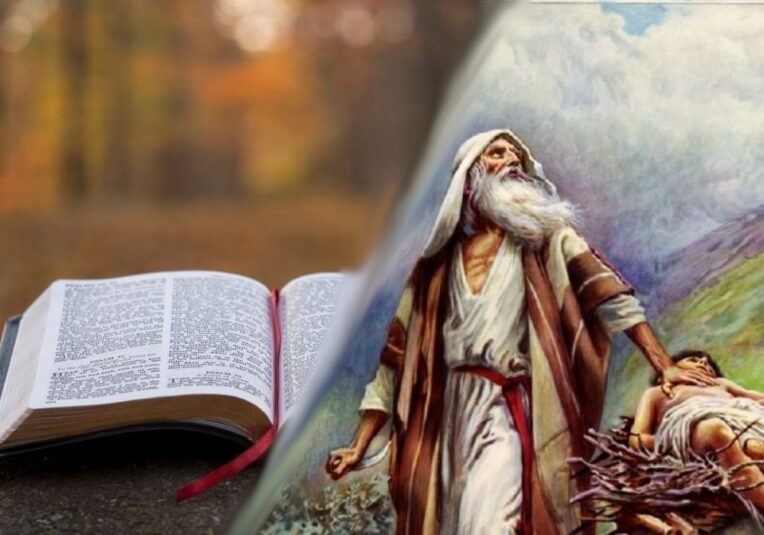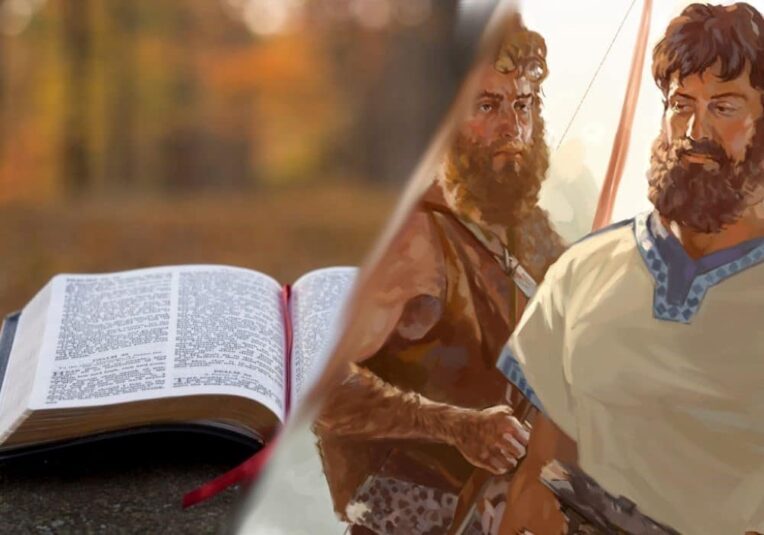Judges 3:12-31 Summary:
Israel does evil again and cries out to God
Verse 12 begins with the children of Israel doing evil again. This time, their punishment is that the LORD strengthened Eglon, the king of Moab.
King Eglon gathered together the people of Ammon and Amalek and took over the city of Jericho.
The people, after 18 years of oppression under Eglon, cried out to the LORD. God raised up Ehud, a left-handed man from the tribe of Benjamin, to be a deliverer for them.
Ehud plots and executes an assassination
This new deliverer, Ehud, planned to overthrow King Eglon and set the people of Israel free from them.
He began by making a two-edged dagger and hiding it under his right thigh. Then he approached the king bearing a tribute from the people of Israel.
Ehud requested a private meeting with Eglon, saying he had a secret message from the LORD. When they were in private, Ehud stabbed him with the dagger. The king’s fat was so much that it completely enclosed the blade, and Ehud couldn’t pull it out.
Ehud escapes and the LORD delivers the Moabites into Israel’s hand
The king’s guards were waiting outside during Ehud and Eglons meeting. They didn’t think to check on the king because the door was locked and they figured he must have been using the bathroom in the private chambers. They were embarrassed when they had waited so long and found him dead.
Meanwhile, Ehud escaped back to the Mountain of Ephraim. Here, he gathered together all the people and told them that the LORD had delivered their enemies into their hands. He led them back down to the Jordan River and conquered the Moabites.
Israel had peace for the next 80 years.
My thoughts on Judges 3:12-31
Ehud is the embodiment of the unexpected
In a world of “rightys,” Ehud is left-handed.
Almost everything about Ehud is not what one would expect.
For starters, the text mentions that he is a left-handed man. This is an interesting fact, since in many cultures around the world, left-handedness is seen as negative. We wouldn’t expect to see a lefty as the hero of any ancient near-eastern story.
In the Bible, we don’t have any verses that outright demean the left hand, but we certainly have some that indicate the right hand as more favored or as the hand of strength and action. For example: Genesis 48:14-18, Exodus 15:6, Deuteronomy 33:2, Psalm 17:7, Matthew 25:33, Acts 7:56, and many more.
Ehud was not threatening
In the sermon this sunday, my pastor mentioned that some scholars think it may have been possible that Ehud was crippled somehow in his right hand. I don’t see anything in the text that implicates this directly, but it would make sense that this is why he was able to get so close to the king without any guards around. They simply didn’t see him as a threat.
On top of his unthreatening appearance, Ehud also hid his blade in an unexpected place. Usually, blades of this kind would have been shiethed in a more conspicuous and useful position, like the outer leg. But Ehud hid his blade on the inside of his right thigh. This is certainly not where one would expect a sword to be.
Jesus was also unexpected
The unexpectedness of Ehud compares to that of Christ. Christ was not what people were expecting. The Jews were expecting a conquering king, but instead, the messiah came as a gentle and lowly servant. There’s even a dispute among some who thought the savior couldn’t come from Nazareth (John 1:46).
Ehud’s method of delivering the people was also unexpected. He assassinated the king with a hidden dagger among the king’s guards, in the king’s own house. Christ delivered his people by dying on the cross for their sins.
The 2-edged dagger’s connection to Christ
Verse 16 says that Ehud made a dagger with two edges that was a cubit in length.
Several translations use the word “dagger,” but the word is more often translated as “sword.” In my opinion, the word “sword” is both more accurate, based on the description given, and is more easily cross-referenced with other scriptures.
For example, a quick search for “sword” elsewhere in the Bible brings up several verses in the New Testament that specifically refer to the Word of God: Ephesians 6:17, Hebrews 4:12, Revelation 1:16, Revelation 2:12, Revelation 2:16, Revelation 19:15, and Revelation 19:21.
God’s word compares with Ehud’s sword
The one that stands out to me the most is Hebrews 4:12, “For the word of God is quick and powerful, and sharper than any two-edged sword…”
In this verse, the word of God is described as a two-edged sword which is exactly how Ehud’s blade is described. It seems to me that there could easily be a connection between the two.
Hebrews says that the word of God cuts through and easily divides even the most difficult things: Soul and spirit, joints and marrow, thoughts and intents of the heart. This is pictured with the story we’re presented here with Ehud and Eglon.
Eglon’s fat covered up the truth of what was inside
In the story from Judges 3, Eglon is said to be a very fat man.
Ancient culture viewed fatness very differently than we view it today. In modern culture, fatness is generally viewed as an unhealthy quality and something that should be avoided. But in ancient times, fatness was a sign of wealth and well-being. If one was fat, it was because they had more than enough for themselves. Many kings and other royalty were known for their fatness, and it was often credited to their wealth.
King Eglon was fat. He had all that he needed, and then some. This fat could be seen to represent not only his material wealth but possibly also the perception of his immaterial wealth. He had power, servants, and land. He also had his graven images, his idols. And not just the idols themselves, but it says in verse 19 that Ehud had to pass by the quarries (KJV) which would likely be where they cut out those graven images.
The use of the word “quarries” here (in the KJV) seems to indicate not only that Eglon had the graven images themselves, but also the means to make more of them as he wished.
He was a very fat man, made fat not only by his material wealth but also by what he thought made him spiritually rich.
Ehud’s sword revealed what was inside Eglon and God’s word reveals what’s inside us
Ehud’s sword cut through the outer appearances of wealth and revealed what was on the inside. Eglon’s insides were full of “dirt,” fecal matter (Judges 3:22). This “dirt” was brought out of him but a cunning blade and he died.
In the same way, the Word of God can cut through the outer layers and reveal what’s inside of us all. The reality is that inwardly we are all the same as Eglon, not just in a physical, biological sense, but also spiritually. We were all dead in our sins (Ephesians 2:1). Despite our outer appearances, our hearts are desperately wicked (Jeremiah 17:9). But through Jesus, our deliverer, our inward parts, where this death resided, are renewed day by day (2 Corinthians 4:16).
3 responses
This was just what I needed. Thank you for explaining it so
clearly!Действительно серьёзная публикация, буквально недавно интересовался ней!!!
Действительно содержательная тема,
прям в последнее время штудировал материалы по ей
теме.













Leave a Reply